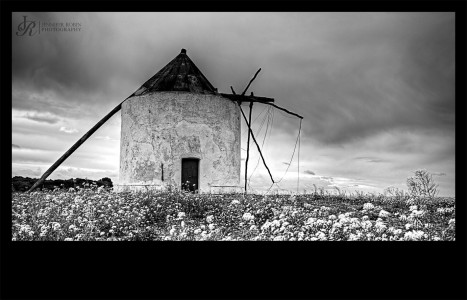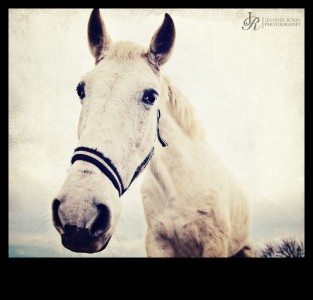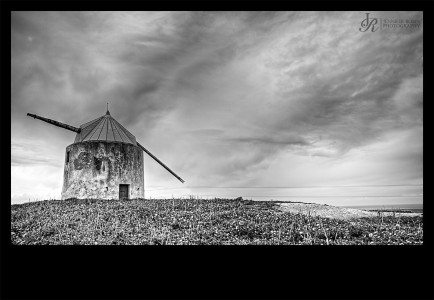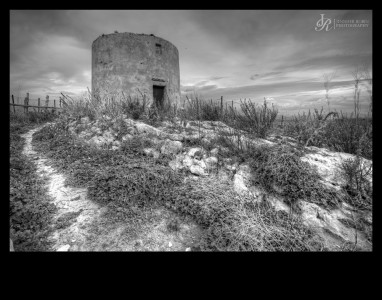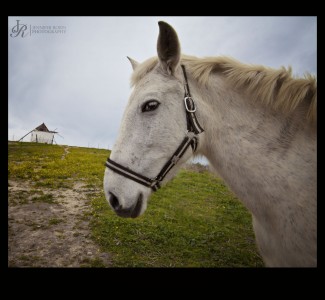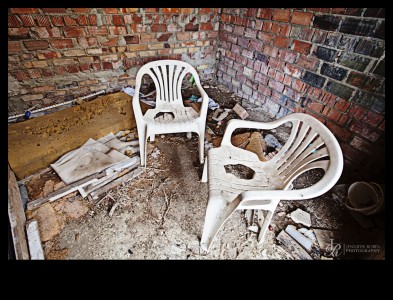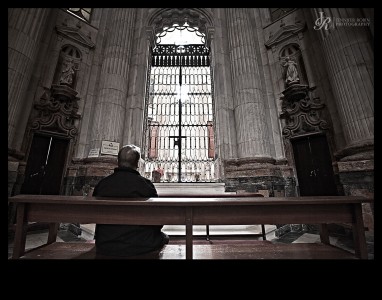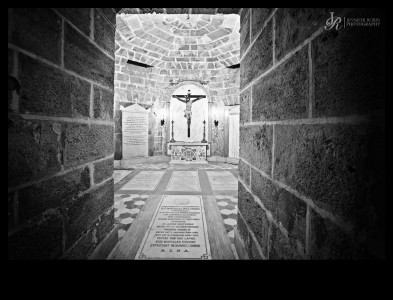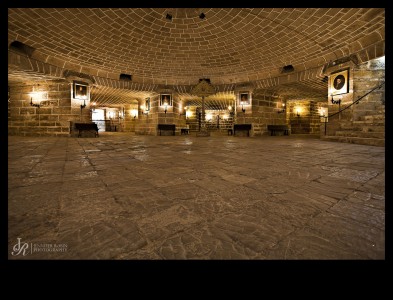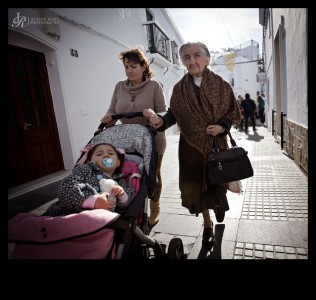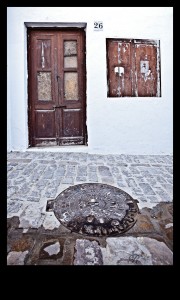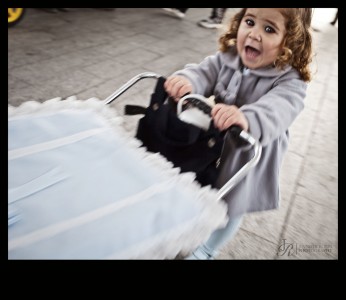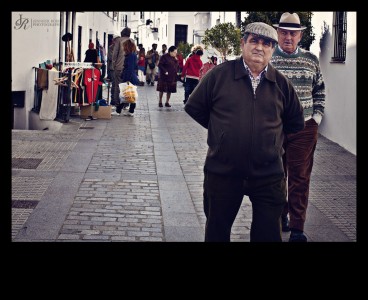 The town is another of those Spanish hilltop villages of white buildings and castle ruins. The outline of the buildings is broken by television antennas, and the white is broken by clothing hung out to dry from windows and on rooftops.
The town is another of those Spanish hilltop villages of white buildings and castle ruins. The outline of the buildings is broken by television antennas, and the white is broken by clothing hung out to dry from windows and on rooftops.
The narrow lanes are patrolled by a few dogs, who leave droppings on the cobblestones.
The town’s rhythm is lazy. Shops open around eight-thirty in the morning, close for the afternoon siesta around two, and maybe reopen around five-thirty for a few hours. By eleven in the morning, some of the restaurants and bars have customers drinking beer at their outdoor tables. At five-thirty, with the conclusion of the siesta, foot traffic picks up noticeably, as does the bar population. There is car and motorcycle and moped traffic through the maze of narrow lanes, but it is light and does not inhibit leisurely walks.
It is January, and the weather has been mostly cold in the morning, with sunny afternoons that make the temperature decent by about one o’clock. It has also been windy, with buildings providing a welcome windbreak in the town’s interior – save for those spots where the narrow lanes become wind tunnels.
But there have been a few days of bad weather – nasty, wet, cloudy, windy, cold days. They have driven us indoors, and made the short walk to our favorite bar something of an endurance test.
The bar we have adopted is La Bodeguita. It’s a small bar, with three outdoor tables on the cobblestone lane. It has its local regulars, many of whom bring  their dogs along. The wi-fi Internet access is free, and beats hell out of what we can get from the apartment we are renting.
their dogs along. The wi-fi Internet access is free, and beats hell out of what we can get from the apartment we are renting.
Restaurant dining has not worked out for us, as vegetarian is a very foreign word in this place. If you eat ham and fish, it’s probably fantastic. If you are looking for tofu, you will probably be searching for the remainder of your life. So we eat at home, made possible by a small kitchen in the apartment we have rented.
Unlike the kitchen in the house we rented in San Pablo de Buceite, this new kitchen does not anchor us in the apartment. That’s because this new place is smaller, darker, colder, has no Internet access, and has such a weak electrical system that turning on more than one of anything causes breakers to trip. We end up cooking in the dark, with our coats on, over a single burner. The shortfalls in the apartment tend to push us out into the street, where we eventually find our way back to La Bodeguita.
Our travels outside Vejer have taken us to Barbate, the beaches to its west, and to Cadiz.
 Barbate is a fairly unattractive town, set on a long stretch of beach. If you are interested in graffiti, there are some pretty impressive tags on its northern outskirts, in what looks like the Spanish version of America’s Section 8 housing. If you are interested in sunken boats, there are a few hulks in the channel and harbor area used by the fishing fleet.
Barbate is a fairly unattractive town, set on a long stretch of beach. If you are interested in graffiti, there are some pretty impressive tags on its northern outskirts, in what looks like the Spanish version of America’s Section 8 housing. If you are interested in sunken boats, there are a few hulks in the channel and harbor area used by the fishing fleet.
The beaches to the west of Barbate – between it and Conil de la Frontera – are nice, long stretches of sand. During the summer they must be packed. Even now, there are surfers and boogie boarders, and some of the beachfront bars are open for the handful of folks willing to brave the cold and drink beer at outside tables.
Cadiz is a little over thirty miles away from Vejer. We spent an afternoon there, which is much too little time to do anything more than see how much you are not going to see. Cadiz is big, populated, and trafficked. It looks worth spending a couple days exploring. Unfortunately, we have run out of time.
Events back in the States are causing us to leave Vejer, and terminate our current world travels earlier than planned. Our dog George, Jen’s baby of twelve years, has been diagnosed with a rapidly progressing bone cancer that is crippling one leg. We received word of the diagnosis on a Sunday, and are flying back to the States on a Wednesday.
Vejer was our experiment in being Spanish townies, whereas San Pablo was our experiment in being Spanish country folk. San Pablo turned out to be the better fit for us, what with all the space and quiet and privacy, and the nice house with its kitchen and Internet access and solid electrical system. Being a townie isn’t bad, but we’d rather be farmers.
